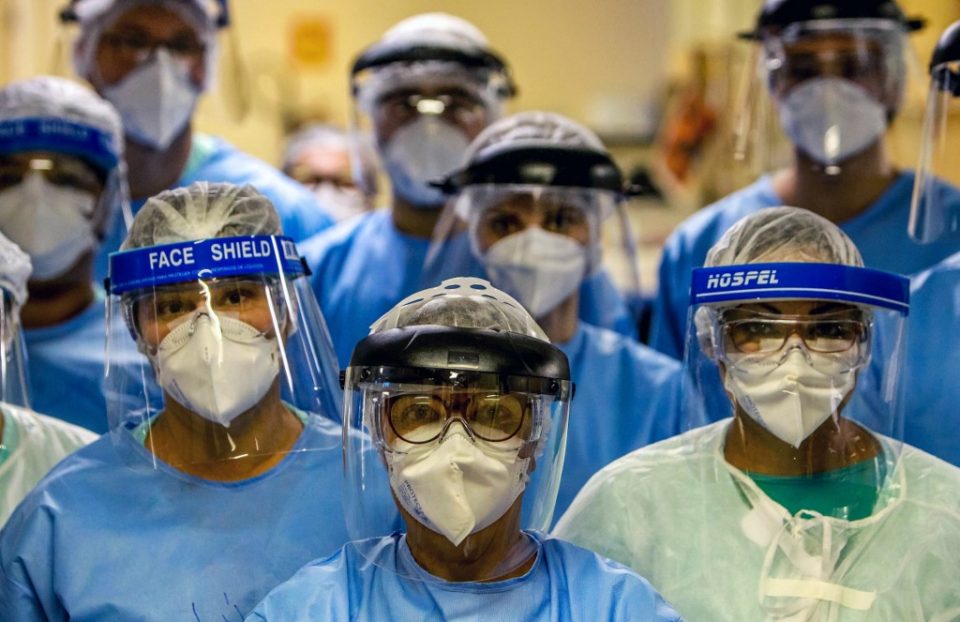
by Florence GOISNARD
Agence France Presse
SAO PAULO, Brazil (AFP) — Neither of the Sztajnboks is getting much sleep these days.
Dr. Jacques Sztajnbok, head of intensive care at one of the main coronavirus hospitals in Sao Paulo, Brazil, says the stress of being on the front line of the pandemic often wakes him up in the middle of the night.
His wife, Dr. Fabiane Sztajnbok, an infectious disease specialist in the hospital’s emergency room, says the same.
He spends his sleepless hours trawling through scientific studies, hoping to find something that will “add a piece to the COVID-19 puzzle,” he said.
She awakens simply because she is “worried and anxious,” she said.
The Sztajnboks work at the Emilio Ribas Infectious Disease Institute in Brazil’s biggest city, the epicenter of COVID-19 in Latin America.
The pandemic has changed life in big and small ways for their family of four.
Jacques, 55, and Fabiane, 47, no longer hug or kiss their children when they get home. Instead, they first shed their potentially contaminated clothes and head straight for the shower.
Jacques has not taken a day off since mid-March.
“I’m responsible not only for my patients’ health, but that of my team,” he said.
His intensive care unit’s 11 beds have been full since mid-April, all with COVID-19 patients.
On average, one has been dying each day.
Several of his colleagues have also gotten sick.
“Whenever my phone rings, I think, ‘Do we have another doctor who’s gotten sick?’ And that’s a worry we’ve never had before, even in other epidemics,” he said.
Front-line family
The Sztajnboks met, fittingly enough, during another epidemic: a measles outbreak in 1997.
They live in a big, plant-filled apartment in the chic neighborhood of Pinheiros with their children, Ana, 12, and Daniel, 10.
Ana said she does not worry about her parents, because “they’re not in the high-risk group.”
Daniel, meanwhile, thinks their work is “cool and courageous.”
“At dinner we always talk about what happened during their shifts. It’s really interesting,” he said.
Birthday wish
The Sztajnboks say they feel the need to talk about their days more than ever.
“It helps us get through to know we have the same objective, to know we’re in this together,” said Fabiane.
But it can be hard to draw a line between work and home.
They set a rule early on: evening time is to unplug and be together as a family.
But sometimes it gets broken.
On Jacques’ 55th birthday, he came home from work and changed into flip-flops and shorts, all set to relax.
But he could not help looking constantly at his phone, following the progress of his patients and infected colleagues.
As the family gathered around a computer screen for a virtual celebration with relatives, Jacques got a piece of welcome news on his phone.
One of their patients, an obese woman in serious condition, had doubled her respiratory capacity after Jacques had her turned over onto her stomach to help her breathe.
Happy, Jacques read the message aloud to his family several times.
“This disease is very complicated. Not all patients respond to the same treatment. We have to tailor our treatment to every case. That’s why I can’t bring myself to stop working,” he said.
“But it’s so rewarding when a patient starts doing better.”
Then it was time for cake.
Even then, it was difficult to disconnect, said Jacques: as he blew out his candles, his thoughts were with his patient, lying on her stomach in the ICU — his ICU.
© Agence France-Presse







